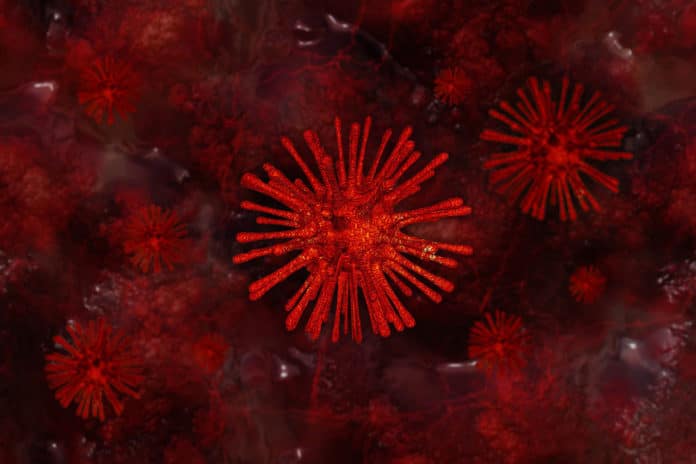Scientists at the University of Pittsburgh School of Medicine have announced a potential vaccine against Coronavirus that shows promise for neutralizing the virus.
The medicine was delivered to mice through a fingertip-sized patch. Scientists observed that the vaccine produces antibodies specific to SARS-CoV-2 within two weeks at quantities thought to be sufficient for neutralizing the virus.
Co-senior author Andrea Gambotto, M.D., associate professor of surgery at the Pitt School of Medicine, said, “We had previous experience on SARS-CoV in 2003 and MERS-CoV in 2014. These two viruses, which are closely related to SARS-CoV-2, teach us that a particular protein, called a spike protein, is important for inducing immunity against the virus. We knew exactly where to fight this new virus. That’s why it’s important to fund vaccine research. You never know where the next pandemic will come from.”
Co-senior author Louis Falo, M.D., Ph.D., professor and chair of dermatology at Pitt’s School of Medicine and UPMC, said, “Our ability to rapidly develop this vaccine was a result of scientists with expertise in diverse areas of research working together with a common goal.”
The vaccine is dubbed as PittCoVacc, short for Pittsburgh Coronavirus Vaccine.
Unlike experimental mRNA vaccine candidate that just entered clinical trials, this newly developed vaccine follows a more established approach, using lab-made pieces of viral protein to build immunity. It’s the same way the current flu shots work.
To deliver the drug to mice, a novel approach called a microneedle array was used to increase potency. This array is a fingertip-sized patch of 400 tiny needles that deliver the spike protein pieces into the skin, where the immune reaction is strongest. The patch goes on like a Band-Aid and then the needles — which are made entirely of sugar and the protein pieces — dissolve into the skin.
Falo said, “We developed this to build on the original scratch method used to deliver the smallpox vaccine to the skin, but as a high-tech version that is more efficient and reproducible patient to patient. And it’s pretty painless — it feels kind of like Velcro.”
Although, scientists haven’t tracked the animals for the long term yet. But, scientists think that mice who got their MERS-CoV vaccine produced a sufficient level of antibodies to neutralize the virus for at least a year. So far, the antibody levels of the SARS-CoV-2 vaccinated animals seem to be following the same trend.
Falo said, “Testing in patients would typically require at least a year and probably longer. This particular situation is different from anything we’ve ever seen, so we don’t know how long the clinical development process will take. Recently announced revisions to the normal processes suggest we may be able to advance this faster.”
Scientists are now planning to apply for investigational new drug approval from the U.S. Food and Drug Administration in anticipation of starting a phase I human clinical trial in the next few months.
Additional authors on the study are Eun Kim, Geza Erdos, Ph.D., Shaohua Huang, Thomas Kenniston, Stephen Balmert, Ph.D., Cara Donahue Carey, Michael Epperly, Ph.D., William Klimstra, Ph.D., and Emrullah Korkmaz, Ph.D., all of Pitt; and Bart Haagmans, of Erasmus Medical Center.
Journal Reference:
- Microneedle array delivered recombinant coronavirus vaccines: Immunogenicity and rapid translational development. DOI: 10.1016/j.ebiom.2020.102743
